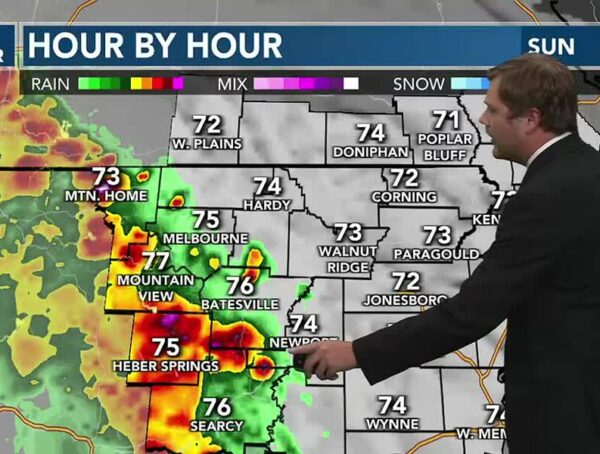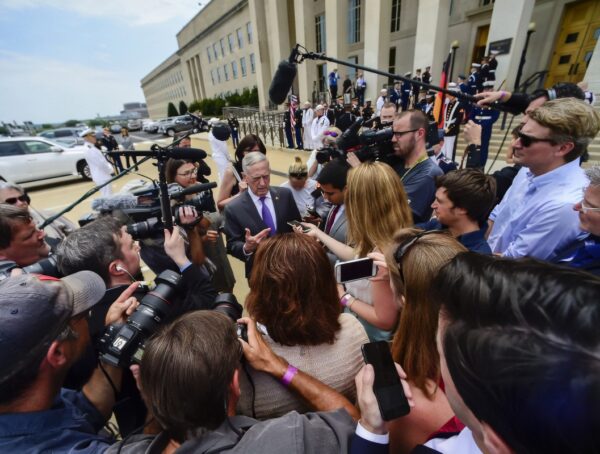Thousands of college graduates are just three or four months away from the broadcast job hunt. They’re entering a profession known for low pay and high rates of burnout. But there’s still a lot to love about working in news, according to some first-year TV journalists.
Sarah Gail Myers said she found and applied for her job at WEAR Channel 3 News in Pensacola, Florida on Indeed.
“I put my resume and my reel in there without expecting anything out of it. Later on, I had a phone interview, and then an in-person interview sealed the deal,” she said.
For Avery Hilliard, who works at WTVA in Tupelo, and Cameron Smith who reports for WTVJ in Jackson, faculty connections at the University of Mississippi helped them land their first jobs. Hilliard says she also had to rethink her job-hunting strategy.
“My end goal is to be a sports reporter. I kinda limited myself when it came to job hunting. I was just looking for sports reporting. I never thought to just do regular news,” Hilliard said, noting that she is enjoying the role of a general news reporter.
All three work as multimedia journalists (MMJ).
“I go out there, set up the camera myself, shooting everything, and ask the interview questions,” Smith explains.
Some of the challenges they have all faced in their first year included adjusting to demanding schedules, getting more creative to avoid telling generic stories, and learning how to do things faster.
“Sometimes I only have an hour and a half, not only to pick the story but to go get the interview, the video, write it, condense it, track it, do all that. But over time it got a lot easier and now I work so much quicker,” Myers says.
Hilliard has had to find a way to have more personality.
“Instead of me saying the winter weather is bringing a blizzard, I can say it’s cold outside y’all and you are going to have to bundle up.”
So, what do they say are some of the lesser-known keys to success on the job?
Making Connections
The reporters agree that the most important skill in their job is listening – using their people skills to connect to the people they’re covering.
“One of the things I do as a reporter before I interview anybody, especially for the first time, is talk for a few minutes about the story, about what we’re doing, what they feel, and whatever is going on in their head,” Myers says.
Hilliard says success in the industry is all about relationships – especially with your sources.
“I think it’s just about being a good honest reporter and making sure you’re telling the truth. I also try to add a little more personality. When you make the relationship, they’ll text you first before anybody else is saying what has happened in the area,” Hilliard says.
Smith compares it to working in sales. He says reporters have to go out there, hand out their business cards, introduce themselves to people, and keep showing up, especially the first year.
He says, “Then you get those phone calls and they’ll come to you [with] stories, but I make sure to take that extra time and show that I care about this relationship.”
Embracing Feedback
These young reporters say it is essential to be coachable, teachable, and take constructive criticism.
“Even though sometimes you might not want to hear it, just take it and then just go with it and just try to apply it where you can,” Hilliard says.
Smith agrees that seeking out constructive criticism should motivate you.
“I feed off of that as far as asking… ‘How can I make this better?’” Smith says he appreciates hearing how to improve. “It’s having them just invest their time in me.”
Myers, too, likes working in an environment where everyone is trying to improve.
“In every single script we all write no matter if it’s me, who it’s my first year, or Laura, who it’s her 20th year, they have someone else review our scripts before we go track them,” Myers says. “If we do something on air, especially something different in any way, they’ll say, ‘Oh, that worked. That didn’t work.’ I think the feedback is used to make sure that we’re producing the best stuff that we can.”
For those graduating in 2024, these first-year journalists will tell you that the job isn’t easy, but you can find a station willing to help you grow if you are willing to listen.








